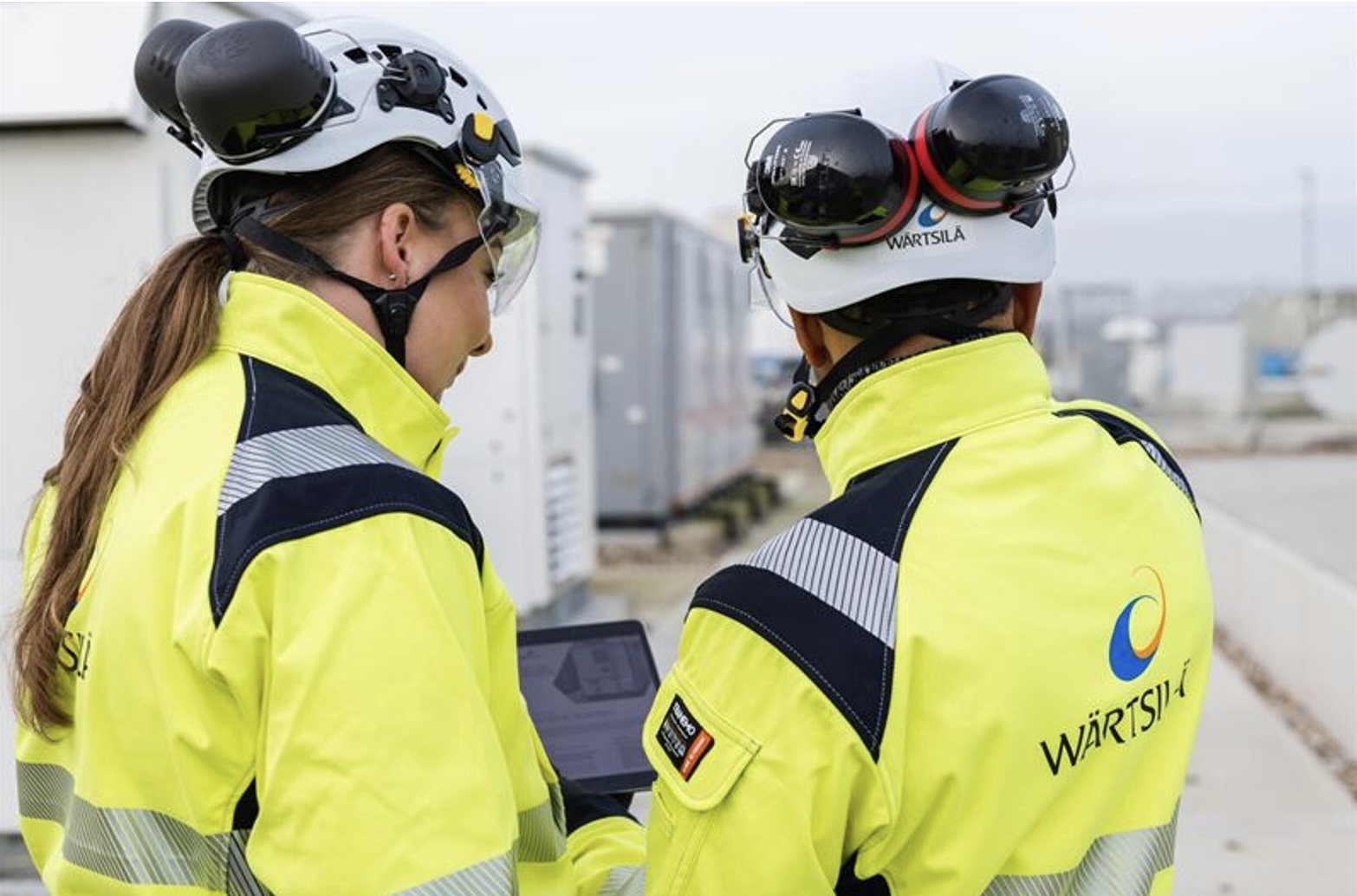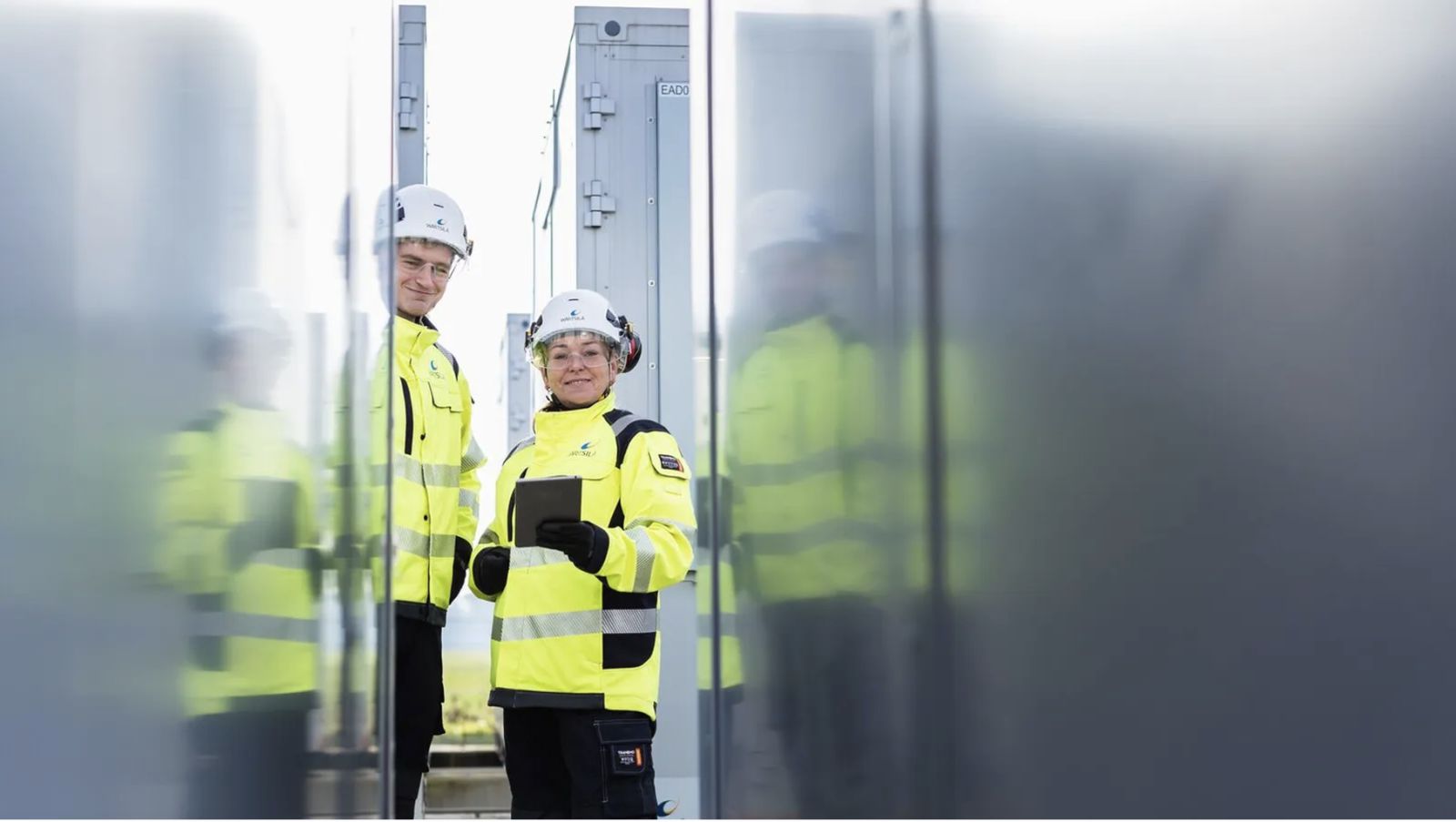A Quieter Place: Addressing noise at energy storage sites
Imagine standing a basketball court’s length away from a battery energy storage system (BESS) facility. You’d likely hear the hum of machinery, similar to the sound of a vacuum cleaner or a dishwasher running in the background. While these noises are part of everyday life, they can be disruptive to local communities, especially as BESS projects are built closer to urban and residential areas. BESS facilities are essential to the clean energy transition, enabling renewable energy like solar and wind to be reliably stored and then deployed when the grid needs it the most. However, as BESS projects are increasingly developed near residential zones, noise mitigation has become a central concern. To continue advancing clean energy systems, industry stakeholders must look beyond compliance by proactively addressing public safety and community well-being through noise mitigation solutions.
Noise mitigation is a continuously developing regulatory priority
Noise concerns are increasingly shaping the regulatory landscape for energy storage projects. Heightened noise regulations are already emerging worldwide, with the European Union and Australia imposing penalties for projects that exceed noise limits. In the U.S., noise is also becoming an increasing concern as energy storage projects are being developed closer to residential areas, unlike many existing sites that are situated in rural locations. This shift necessitates more stringent noise management practices to comply with local regulations and to minimize the impact on nearby residential communities.

These growing regulatory demands call for a more proactive and comprehensive approach to managing noise. Energy storage developers and operators will need to take a long-term view, prioritizing noise mitigation from the earliest stages of design to avoid costly retrofits and compliance issues later on. Addressing noise early in the design phase will not only help meet local regulations, but will also support the larger goal of building more resilient and sustainable energy systems.
Strengthening public trust and supporting communities
Adopting a forward-thinking strategy to noise mitigation helps to foster positive relationships with local communities. It’s not just about adhering to local regulations — it’s about demonstrating that the energy storage industry understands the concerns of residents and is willing to take steps to address them. By investing in noise reduction technologies and solutions, operators can show that they are committed to being good neighbors. This helps build public trust, which is crucial for gaining community support and ensuring that energy storage projects are embraced rather than protested.
Third-party verification of noise levels is an important part of this process. Independent consultants can conduct noise assessments to ensure that energy storage projects meet the regulatory requirements for noise emissions, and that reduction measures are implemented with local needs in mind. The transition to clean energy depends on the industry’s ability to respect, learn from, and adapt to local communities where these energy resources are being produced and deployed.
Noise presents challenges and opportunities for community-based solutions
Effectively managing noise in energy storage systems is a complex challenge. The diversity of BESS locations means that there is no one-size-fits-all approach to noise reduction. Factors such as local climate, building materials, and surrounding vegetation can all influence how noise radiates from BESS facilities. Accurate noise data can also be difficult to obtain, and high barriers designed to block noise may introduce aesthetic, safety, and cost concerns.
Selecting a partner that has fitted its BESS with noise mitigation solutions and operational controls that can be tailored to specific community needs can unlock new opportunities. For instance, systems with reduced noise emissions can be sited in noise-sensitive areas, such as urban neighborhoods, allowing for more flexibility in project location. Quieter operations also reduce mechanical strain on components, leading to longer equipment lifespans and lower maintenance costs.

Embrace noise reduction solutions to grow the clean economy
The clean energy transition requires systems that are not only resilient, but also enable energy operations to be market-optimized, efficient, and sustainable. Reducing noise at BESS facilities expands the range of potential project sites and allows the industry to take advantage of locations that might otherwise have been off-limits previously. This ensures that the energy storage industry can continue to grow without disrupting the lives of nearby residents.
Proactively tackling these challenges is not just about managing risks — it’s about building trust, protecting the environment, and ensuring the industry’s long-term success. By addressing noise at the outset, energy leaders can strengthen their relationships with local communities, as well as avoid costly setbacks. Now is the time for the energy storage sector to take noise mitigation seriously.
Fadi Zara is a Technical Program Manager at Wärtsilä Energy Storage & Optimisation (ES&O), offering game-changing products and technologies in the global power industry. Fadi specializes in the development of battery energy storage systems. He has extensive experience in acoustic analysis, specifically focusing on noise and vibration mitigation.
Wärtsilä Energy Storage & Optimisation | storage.wartsila.com
Author: Fadi Zara
Volume: 2025 January/February











